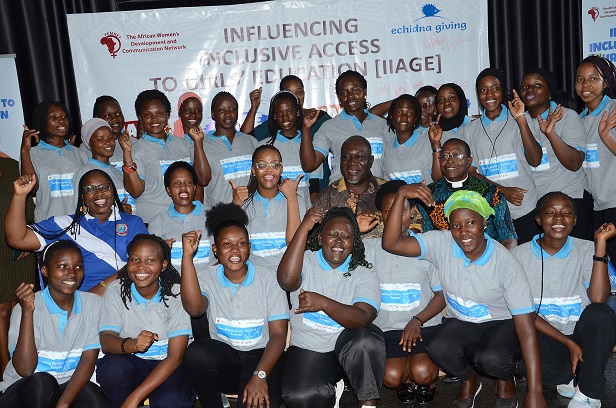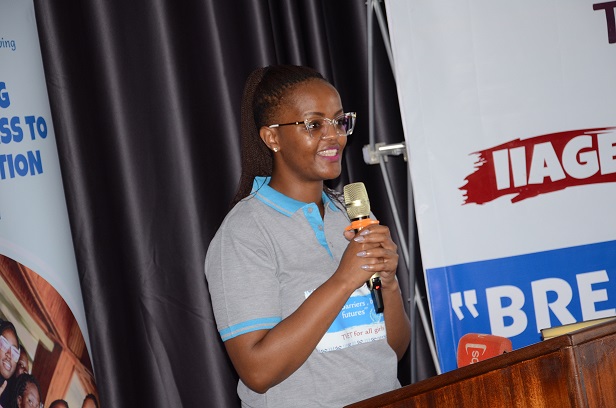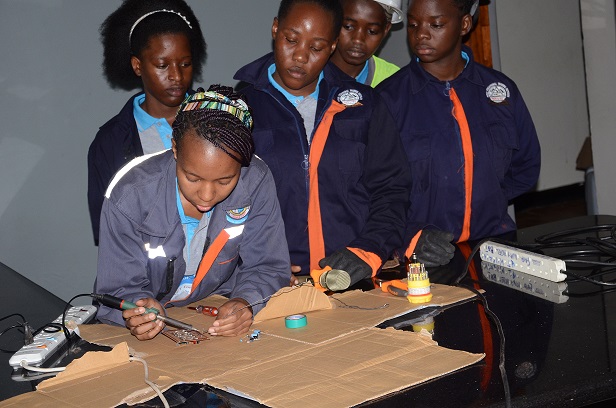
KAMPALA – FEMNET, an African Women’s Development and Communication Network has called on the Government and stakeholders to have all the gaps in Ugandan policies bridged to enable all girls easily access Technical and Vocational Education and Training – TVET.
The call was made at the climax of the 4-day workshop in Kampala on Thursday in which FEMNET engaged different stakeholders and young girls to establish different gaps hindering them.
Under the project aimed at Influencing Inclusive Access to Girls’ Education in TVET Centers, FEMNET also launched a media campaign in which they seek to bring the government on board to forge a way of addressing the issues raised by the young girls.
Ms. Muthoki Nzioka – Girls and Young Women Policy and Program Assistant at FEMNET told the press that they have been doing a review on the policies that guide TVET work in Uganda but also looking at the gaps and where they can come in and intervene.
“We looked at the TVET policies in Uganda, we reviewed them and the girls identified some gaps which we are going to bring the government officials on board and we tell them so that we can get them fixed.”
“There are some gender-specific needs that are not catered for in the current policies; issues like menstrual health, the young mothers who don’t have special provisions and also girls with special needs. We hope all these can be reviewed and be given special consideration,” she added.

She underscored that once the policy gaps are filled, it will make the environment better but also enable better budget allocations and ease access to TVET education for girls in Uganda.
Ms. Muthoki is optimistic that through the media campaign, they will pull all the government and the stakeholders who can support them to get the girls supported.
After harnessing the policy gaps and budgeting, she said “we want to see the transition into jobs, transition into skilled labor, we want the skills to translate into money. We are the generation to break poverty.”
Mr. Mondo Kyateeka, the commissioner in charge of children’s affairs at the Ministry of Gender, Labour and Social Development commended FEMNET for a job well done and asked the young girls to be strong enough and face all the challenges in life, solve them, just like their male counterparts.
“Normally people think that girls should be soft and lazy, that’s a myth we must demystify. Women are a strong gender [and] I want to let you know that what a man can do, a woman can do even better because many times women tend to go for details.”
“Women can be plumbers, electricians, so nobody should tell you that you are venturing where women should not go. You should be able to do anything a man can do. I will be deeply disappointed if any of you dropped out of school sighting one reason or the other,” he noted.

Mondo said that the housing sector is one of the fastest-growing sectors in the country, which translates to jobs in areas of plumbing, electricity connection, welding, furniture, and other related fields.
“The only thing you need is to perfect your skills.”
He also urged them not to hurry “in being messed up by men” but also not to produce many children when the time comes.
“Don’t produce as if you have been hired. It’s poor people that produce that way.”
Earlier in May this year while discussing issues affecting their access to TVET, the girls revealed that they are challenged in various ways like ‘gender stereotypes and cultural beliefs.’
They noted that they are faced with discrimination and limited access to TVET opportunities due to deeply ingrained gender stereotypes and social norms.
They said that TVET institutions in Uganda often lack the necessary infrastructure to support students with disabilities, particularly girls, making it difficult for them to access education and training opportunities.

They also decried the lack of information and awareness, noting that many girls in remote and rural areas are not aware of TVET opportunities and the benefits of pursuing them, thus limiting their participation in these programs, among other many issues.
They asked the government to make intentional efforts toward raising awareness among communities and stakeholders on the importance of TVET education for girls and creating awareness about the opportunities available.
They also called upon the government to make sexual harassment and safeguarding policies mandatory in all TVET institutions and enforce their implementation and popularization.
They also want mandatory insurance for TVET students sponsored by the government and strong policies to track all the money that goes to TVETs and severe punishment for administrators who misappropriate money meant for TVETS, but also tax exemption for equipment used for training in TVETs.





